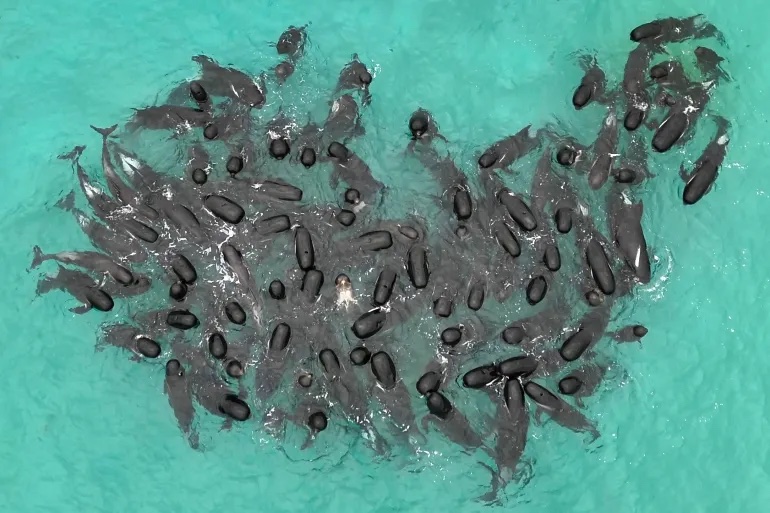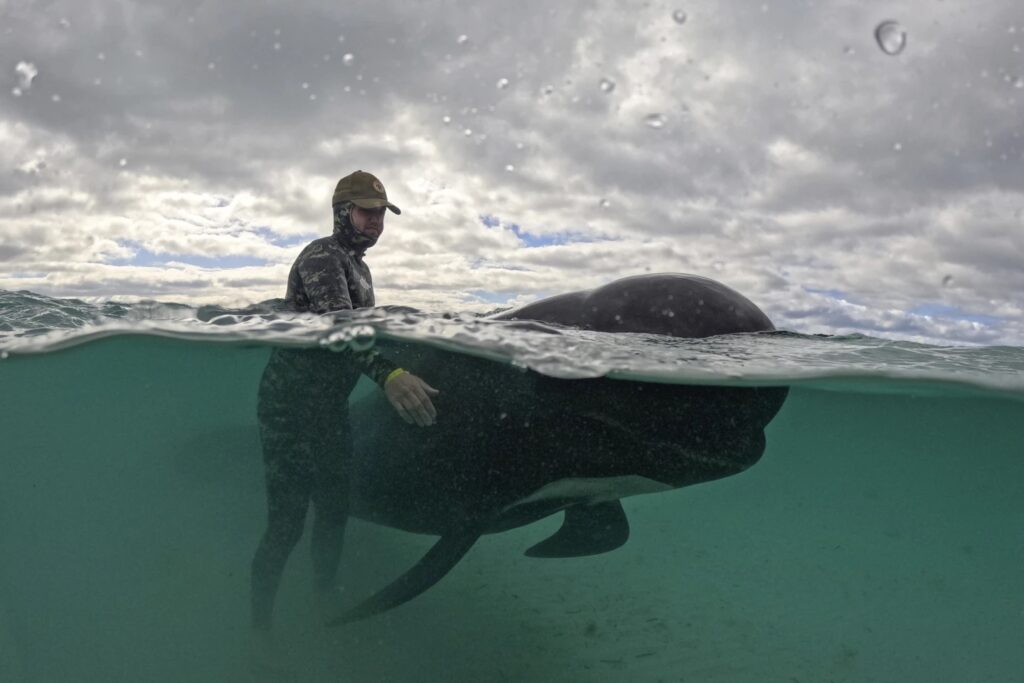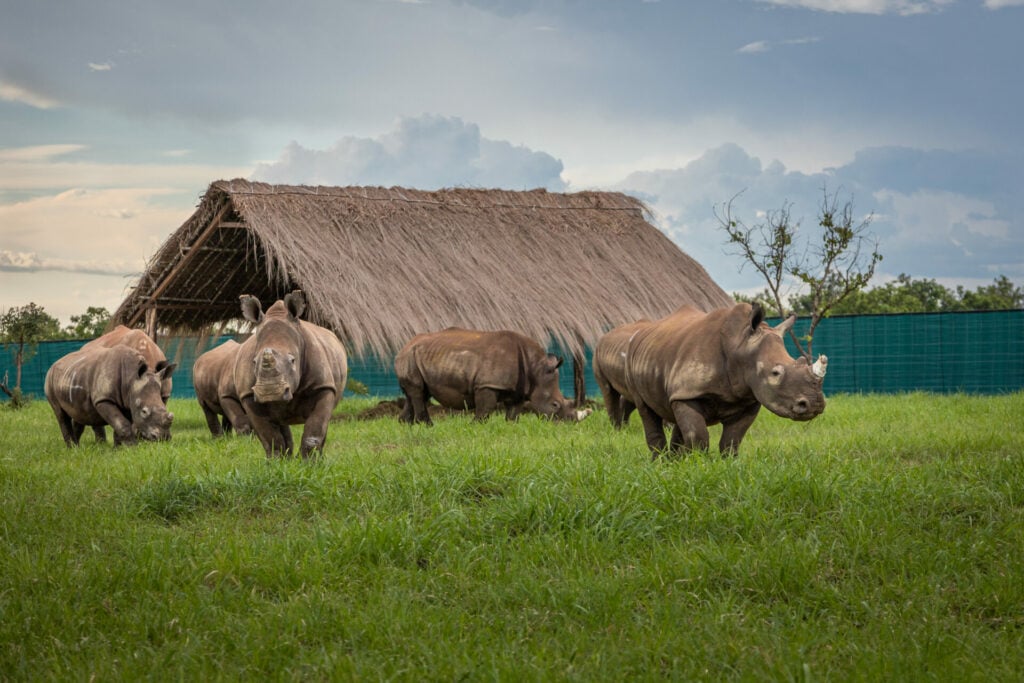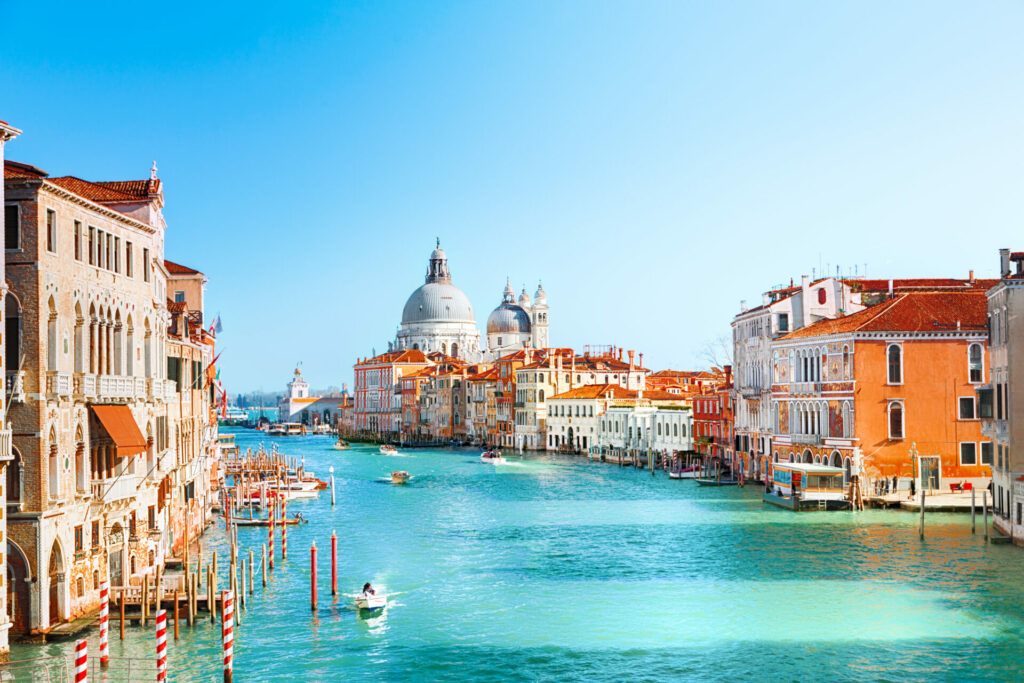Nearly 100 pilot whales have died after a mass beaching on a remote part of the Australian coast.
Officials say they are baffled by the remarkable behaviour of the marine mammals that grouped together in a heart shape before stranding themselves.
Drone footage captured the moment the pod of long-finned pilot whales moved tightly together before stranding themselves at Cheynes Beach about 60km east of Albany in Western Australia.
The following day 51 whales lay dead on the shore, with volunteers, government workers and scientists fighting to save 46 more by dragging them into the water, but they returned to the shore and were eventually euthanised.
Peter Hartley, a manager of the Department of Biodiversity, Conservation and Attractions who oversaw the response described the decision to euthanise the survivors as ‘incredibly hard.’

‘Probably one of the hardest decisions of my 34 years of wildlife management. Really, really difficult,’ Hartley told reporters in Albany.
Perplexing Pilot Whale Behaviour
Wildlife experts believe the beaching could be due to stress or illness within the pod. Scientists do not fully understand why mass strandings occur, but pilot whales – which can grow to more than six metres long – are highly sociable, so they may follow pod-mates who stray into danger.
WA’s Environment Minister, Reece Whitby, said researchers were perplexed by the behaviour of the whales in the hours leading up to the stranding.
‘Those images that we saw off the coast are unique,’ Whitby said. ‘It is pretty incredible from a scientific basis in terms of learning about strandings. Department of Biodiversity Conservation and Attractions [staff], when they saw those images, contacted their colleagues around Australia – they were in touch with other jurisdictions that have mass strandings. The feedback we were getting was we have never seen this before.’

Macquarie University wildlife scientist Dr Vanessa Pirotta said the reason why whales stranded themselves remained a mystery.
‘The fact they were in one area very huddled and doing really interesting behaviours and looking around at times suggests something else is going on that we just don’t know,’ she said.
After analysing the footage, Pirotta said a whale may have been sick or the pod might have become disoriented, but it was unlikely they were trying to avoid predators.
Local volunteer Kaysanne Knuckey said she was waist-deep in the ocean from almost four hours – pulling the live mammals back into the water and supporting them with the help of a sling.
‘It was freezing and hard to stand still just holding the whales,’ Knuckey told local reporters. ‘The atmosphere was fairly positive and everyone is just trying to think of the bright side. It is just so heartbreaking that so many have beached themselves.’
Some of Australia’s worst mass strandings have involved pilot whales – 230 beached themselves on Tasmania’s coast in 2022, and 150 were stranded in Western Australia in 2018.













